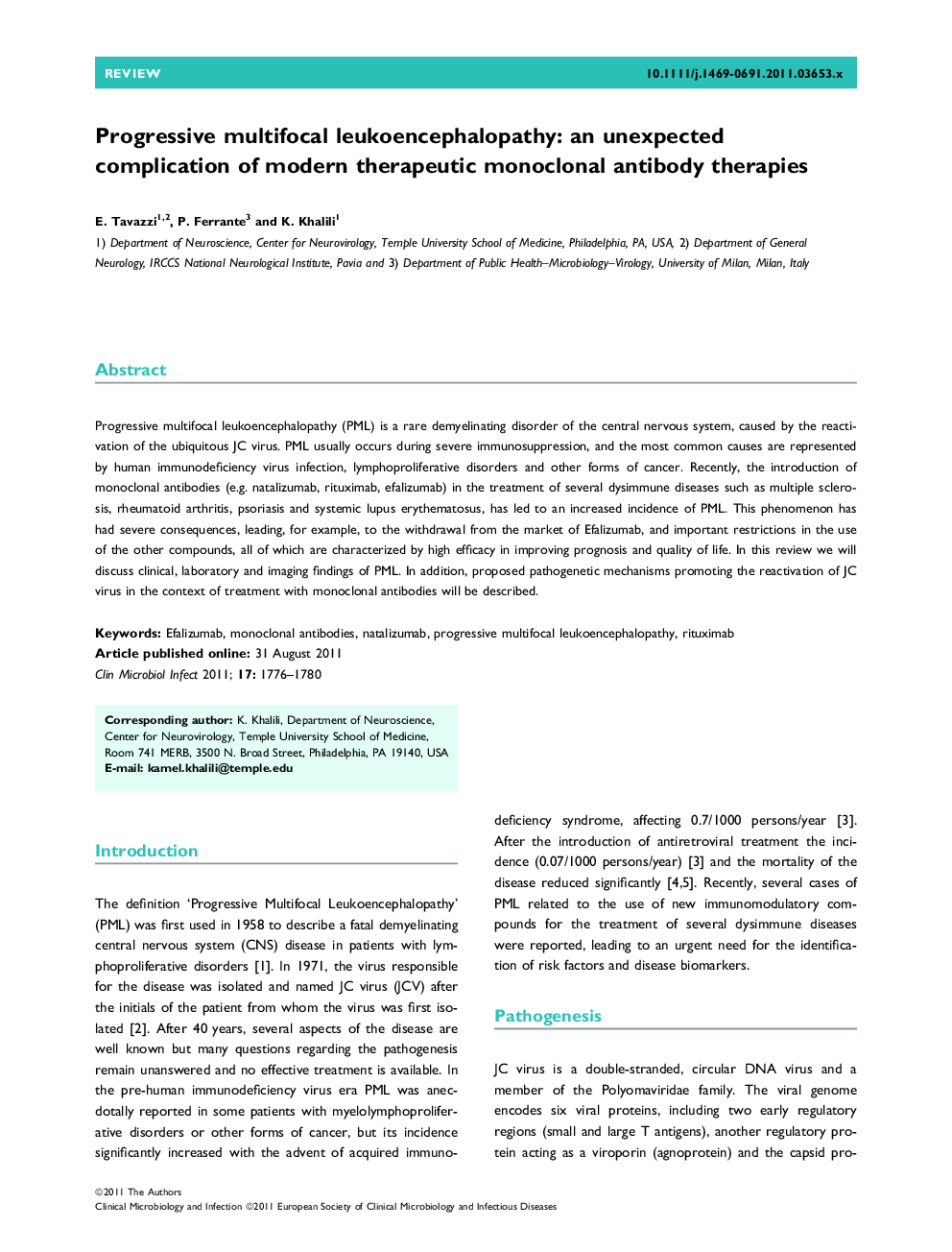| Article ID | Journal | Published Year | Pages | File Type |
|---|---|---|---|---|
| 3396949 | Clinical Microbiology and Infection | 2011 | 5 Pages |
Progressive multifocal leukoencephalopathy (PML) is a rare demyelinating disorder of the central nervous system, caused by the reactivation of the ubiquitous JC virus. PML usually occurs during severe immunosuppression, and the most common causes are represented by human immunodeficiency virus infection, lymphoproliferative disorders and other forms of cancer. Recently, the introduction of monoclonal antibodies (e.g. natalizumab, rituximab, efalizumab) in the treatment of several dysimmune diseases such as multiple sclerosis, rheumatoid arthritis, psoriasis and systemic lupus erythematosus, has led to an increased incidence of PML. This phenomenon has had severe consequences, leading, for example, to the withdrawal from the market of Efalizumab, and important restrictions in the use of the other compounds, all of which are characterized by high efficacy in improving prognosis and quality of life. In this review we will discuss clinical, laboratory and imaging findings of PML. In addition, proposed pathogenetic mechanisms promoting the reactivation of JC virus in the context of treatment with monoclonal antibodies will be described.
